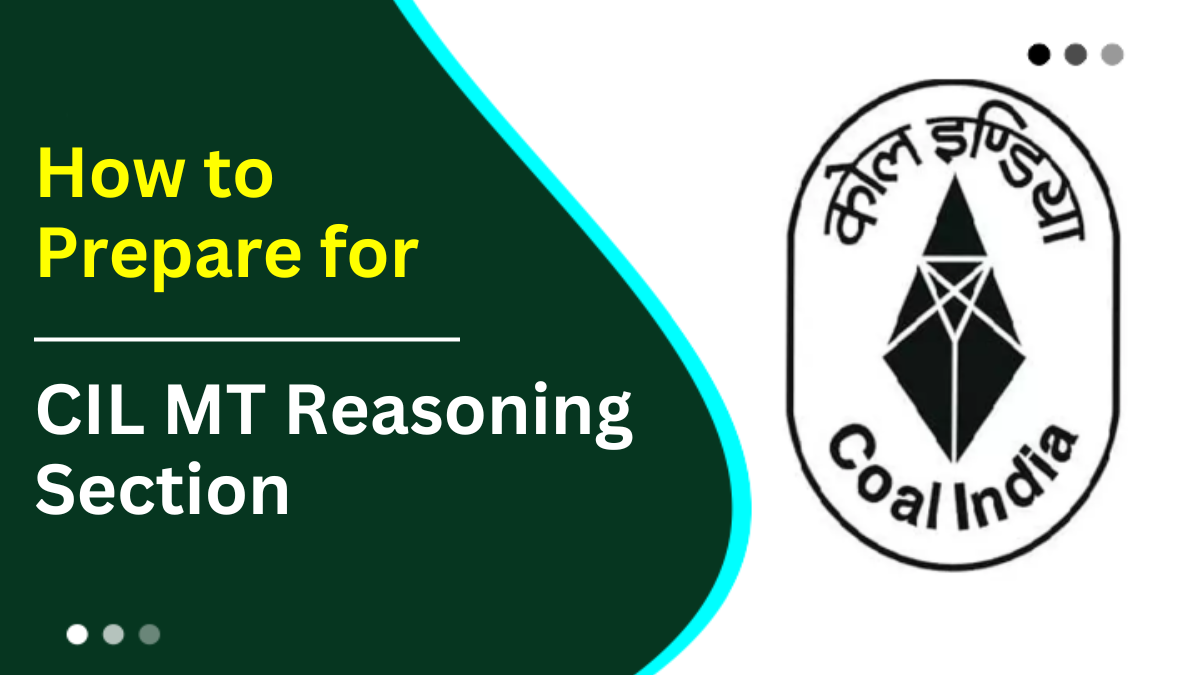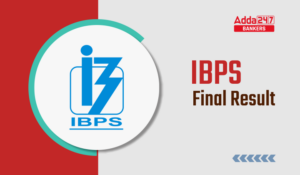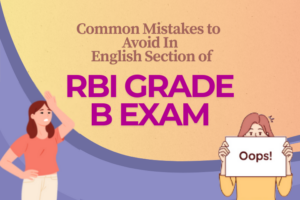Table of Contents
Coal India Limited (CIL) conducts the Management Trainee (MT) exam, which includes a Reasoning section to test candidates’ logical and analytical abilities. Proper preparation is key to scoring well in this section. In this blog, we will discuss the exam pattern, important topics, difficulty level, and study strategies to help you ace the reasoning section.
How to Prepare for the CIL MT Reasoning Section
The Coal India Limited (CIL) Management Trainee (MT) exam includes a Reasoning Ability section to assess the logical and analytical skills of the candidates. This section covers topics such as coding-decoding, syllogism, seating arrangement, puzzles and analytical reasoning, with questions of moderate to difficult level. To excel, candidates must understand the concepts, practice regularly, learn shortcuts and attempt mock tests to improve speed and accuracy.
CIL MT Exam Pattern
The Coal India Limited (CIL) Management Trainee (MT) exam consists of two papers: Paper I (General Aptitude) and Paper II (Professional Knowledge). Paper I covers reasoning, quantitative aptitude and general awareness, while Paper II focuses on discipline-specific knowledge. Both papers consist of 100 multiple choice questions (MCQs) carrying 1 mark each, with no negative marking (subject to official notification). The duration of the exam is 3 hours.
|
CIL MT Exam Pattern |
||||
| Paper | Section | Question type | Marks | Duration |
| Paper i | General Aptitude (Reasoning, Quantitative Aptitude, General Awareness | MCQ | 100 | 3 Hours |
| Paper ii | Professional Knowledge (Based on discipline) | MCQ | 100 | |
Important Topics of Reasoning
- Coding Decoding
- Ranking
- Odd Pair/ Odd one out/ Different option
- Seating Arrangement
- Meaningful words
- Number Series/ Letter series
- Missing Number
- Syllogisms
- Cubes and Dices
- Counting of Figures
- Puzzles
- Direction and Distance
- Complete the pattern/figure
- Blood Relations
- Mirror Image
- Venn Diagram
- Analytical Reasoning
How to Prepare for the CIL MT Reasoning Section
Mastering the Reasoning section is important to excel in competitive exams, as it tests logical thinking, problem-solving ability, and decision-making skills. A well-structured preparation strategy can significantly improve accuracy and speed. All the points are given below.
Understand the Basics
Start by understanding the fundamental concepts of each topic. Books like RS Aggarwal’s A Modern Approach to Verbal & Non-Verbal Reasoning and Arun Sharma’s Logical Reasoning can be helpful.
Practice Regularly
- Solve previous years’ question papers.
- Attempt at least 2-3 reasoning-based mock tests per week.
- Focus on time management to improve accuracy and speed.
Work on Shortcuts and Tricks
- Learn Venn diagram techniques for syllogisms.
- Use the elimination method for coding-decoding questions.
- Practice mental calculations to save time.
Attempt Puzzles and Seating Arrangements Daily
These are the most challenging parts of the reasoning section. Try solving at least 5-6 puzzles every day to enhance logical thinking.
Revise Regularly
Create short notes on important reasoning shortcuts and formulas. Revise them frequently to retain concepts effectively.
Take Online Quizzes and Mock Tests
Many online platforms offer free quizzes and full-length mock tests. Taking these will help in self-assessment and identifying weak areas.




 IBPS Final Result 2025 Coming Out Tomorr...
IBPS Final Result 2025 Coming Out Tomorr...
 Simple Tips to Avoid Common Mistakes In ...
Simple Tips to Avoid Common Mistakes In ...
 Important Topics & Shortcuts for IDB...
Important Topics & Shortcuts for IDB...


